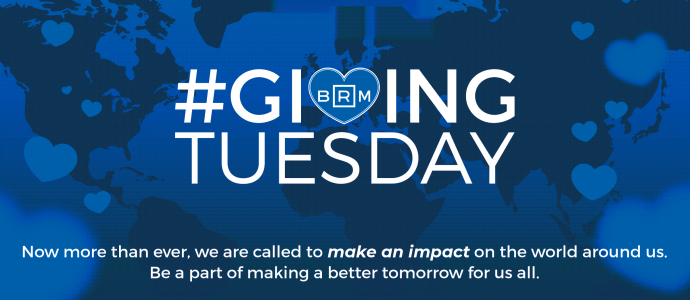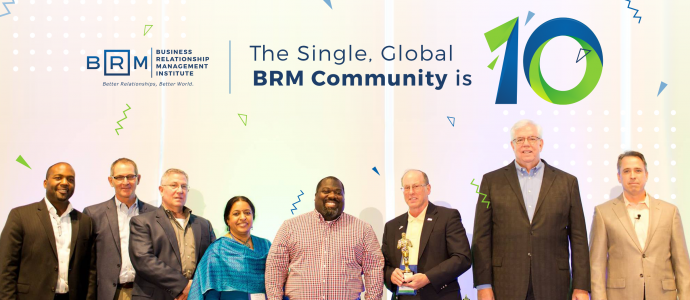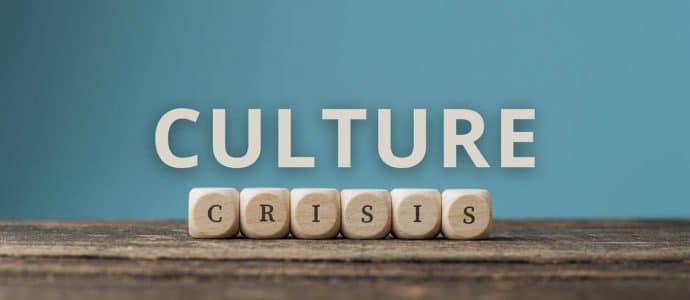BRM Philosophy
BRM as a Philosophy widens the lens on BRM and demonstrates that the strategic and tactical skills of BRMs have a broader use in the world at large. Notably, everything from breaking down silos to convergence of ideas can be applied in a bigger, philosophical sense. Ultimately, BRM focuses on the building and fostering of relationships to satisfy personal and organizational purpose.
GivingTuesday: Empowering Change Through Generosity
At BRM Institute, we believe that each and every one of us has the power to make a positive impact on the world around us. This Giving Tuesday, we invite you to join us in making that a reality and offering a donation to support the education and development of future BRM professionals. Your contribution will help to empower a new generation of leaders who are committed to driving value and fostering collaboration in the business world. With your support, we can create a brighter future for businesses everywhere, and inspire change that will benefit us all. Your donation will provide educational opportunities to BRM professionals through scholarship programs and is tax deductible! Kick off the holiday season by making a donation you feel GREAT about. Start making tomorrow brighter, today!
The Importance of Business Resilience: How BRMs Can Build Resilience in Themselves and Their Organizations
What is most important, resilient organizations must empower their employees, build relationships, and ensure their employees’ well-being. Organizations must acknowledge the importance of and invest in their employees’ resilience. Organizations can help their employees better cope with challenges by providing resources for mental and physical health and stress management.
The Timeless Legacy of Greatness: BRM
Together, we can inspire future generations to live purposeful lives and make a positive difference in the world. Join the BRM community in our mission to improve ourselves, our communities, and our world by connecting relationships to results. Let’s continue to strive for greatness and work towards building a legacy that will have an everlasting impact on the world.
The Pursuit of Passion: Volunteers Make the Difference
Here in the BRM community, volunteers drive everything we do. Everyday, but especially on International Volunteer Day, we celebrate volunteers and the lasting impact of their efforts around the globe.
BRM Starts with YOU
You want to build a global community of BRMs? You have to work from the inside out. And no, not from the inside of the BRM community out, but from the inside of who you are as a BRM to the authority you show outwardly to the world. Too often, BRMs expend a lot of energy and time on proving their worth instead of embodying their value. BRMs always have to prove they add value to everyone in their organization. The downside of that is that the focal point of the BRM becomes proving their worth instead of exhibiting their value throughout the entire organization.
Jam Sessions: The Music of Collaboration
Musicians aren’t the only ones who can benefit from jam sessions. Teams can tap into collaboration and make the most of their productivity by channeling their energy toward a shared goal during these sessions. Participants get to build on one another’s perspectives, experiences, and ideas.
Capacity or Ability, Which is It?
Very rarely do people take a moment to consider if a person has the capacity to do what we want them to do. Capacity is different than ability. Even if someone can do something, it doesn’t mean they have the capacity to do it. When was the last time we gave someone the benefit of the doubt? How often have we given up a relationship, a position, a friendship, or a collaboration because the person wasn’t doing what we expected of them?
10 Signs of a Daring Leader
It doesn’t take much effort to recognize the overt qualities of a darling leader. Society tends to flock to people who exude confidence and garner credibility. We look to people who aren’t afraid to take the bull by the horns and lead us in the direction of progress. It is the strong, confident, intelligent, and compassionate leaders who rise to the surface through adversity and growth.
Change and Business Relationship Management
Kooner says approaching change with a “relationships first” perspective allowed her to think of change management as a series of processes rather than tasks. Not only that, but the processes themselves are more humanistic. The future is about relationships.
The Art of Relationships
Good results come from good relationship management; when relationships in an organization are taken for granted, or undervalued, the organization will likely find itself faltering at crucial junctures, or perhaps splintering completely. Relationship management done right anticipates and reconciles these splinters; furthermore, it nourishes an organization’s relationships into powerful currents that push it toward its purpose.
Value: Redefined
We are a society that defines value by how much profit and gains an organization creates. Let’s call a spade a spade. For decades now, the more money a company makes, the better they look to owners, boards of directors, stockholders, and potential investors. Value isn’t defined only in the organization’s profits; value is also defined by the culture within the organization itself and how the people feel about where they work.
Culture Crisis
If there is one thing the last couple of years has taught us, it’s how ill-equipped some organizations were in pivoting to survive a crisis. We saw so many companies, believed to be viable, get swallowed up and perish in the waves of change because of rigid business practices and finite thinking. It was a wake-up call for organizations to continuously evolve and innovate in a rapidly changing world.
From Fear to Fearless
Fear can rule the workplace. No matter the organization or industry you work for, self-induced fear has the real possibility of controlling you. It doesn’t matter if you work for the most generous, creative, collaborative, innovative, diverse, and accepting organization, if you are riddled with fear, it can quite possibly rule your choices, control your actions, and taint your creative process. Fear has a unique power. It recounts the story you tell yourself and it creates the terrorizing dialogue you use in your head. When fear becomes the narrator of your stories, catastrophizing becomes your way to justify your anxiety-riddled thought process.
What Gives Me the Right to Be Here? The Imposter Syndrome
People who experience impostor syndrome often succumb to the idea that they aren’t worthy of their position. You become stuck in a vicious cycle and it’s hard to see any way out of it. What you may not know is that IS is built and nurtured within the confines of your subconscious mind. It’s created by your personal experiences, societal ethos, and the wash and repeat stories saturating your conscious and subconscious mind.
Time to Stop Taking Orders
Today, organizations need forward thinkers, innovative individuals who will not take scripted answers and pats of pacification on the head. That forward thinker is you! It is tough to shift your role. It can be intimidating to take your future in your hands and show leadership that you are a strategic partner and not an order taker. But, within that frame of consciousness is where you can seize the opportunity to rise to the occasion. It takes finesse and confidence to enter the king’s lair and not bend a knee, but instead meet them eye-to-eye.
The 5 Factors That Matter
The factors of an organization matter. The ways in which an organization conducts business, treats its employees, delivers value, and keeps innovating matter. To a relationship-centered organization (RCO), these factors can establish a positive perception of purposeful results. They can also connect individuals’ needs to the organization’s purpose, thereby increasing employee engagement inside and outside the organization.
Where is my place in the world?
Today more than ever, people are expecting organizations to keep to their word and stand by their purpose. If an organization claims to hire people with a growth mindset, help establish meaningful relationships, and build trust among its partners, the organization is expected to see it through. Meaningless words are just words without ideation, and ideation that doesn’t have follow through ends up as pointless theories taking up valuable space. Words matter, and how we use them is significant.
Now-to-New: How BRM Can Innovate Organizational Change
As BRMs, we know that we will always be flexible and available to pivot when necessary. We also know that since our quest to harness value is never-ending, we will always be in the flux of change, and we will always have a static “now” which will evolve into “new” when changes are implemented…which is a cycle that will always continue.















